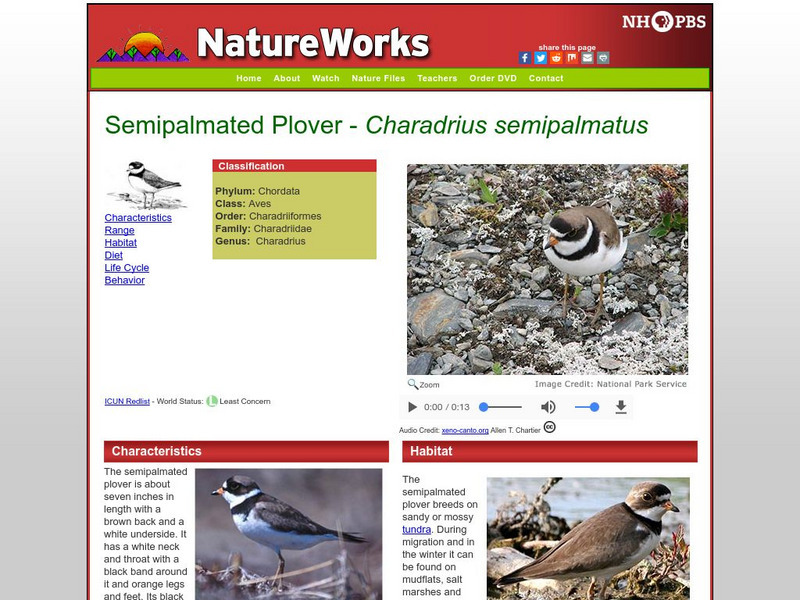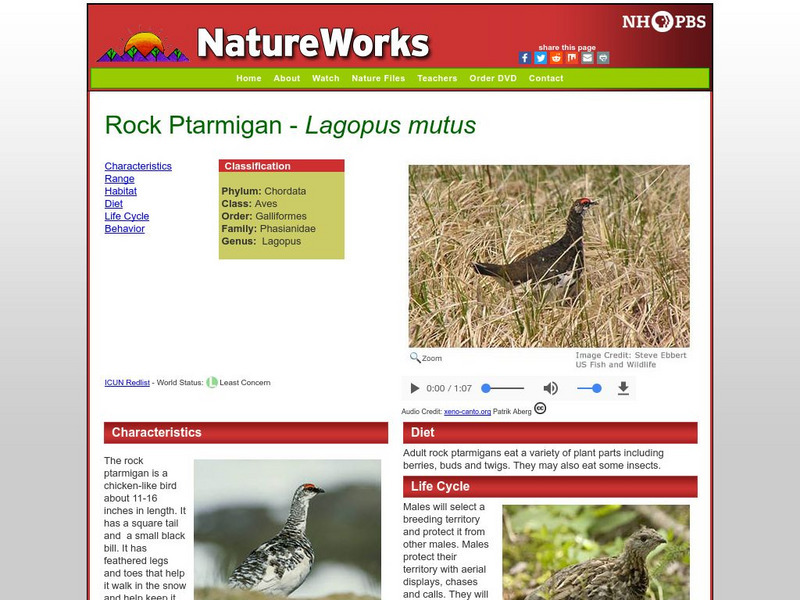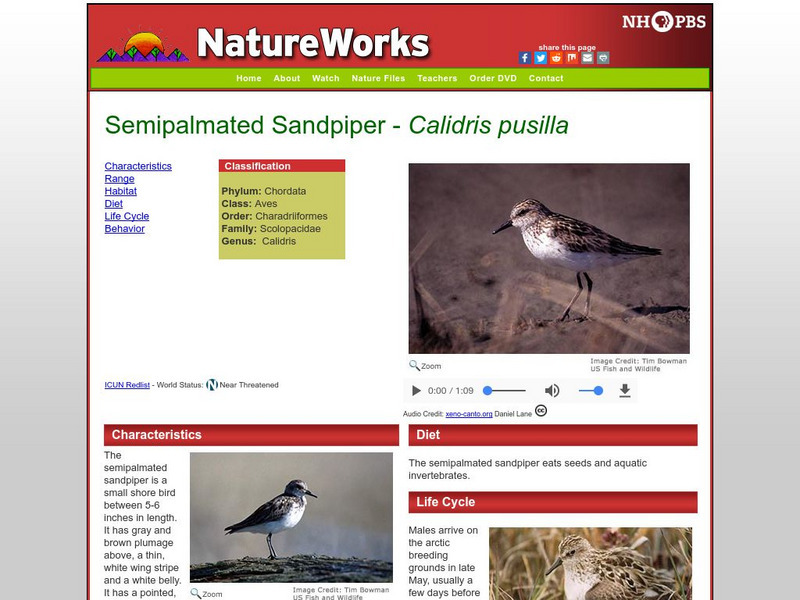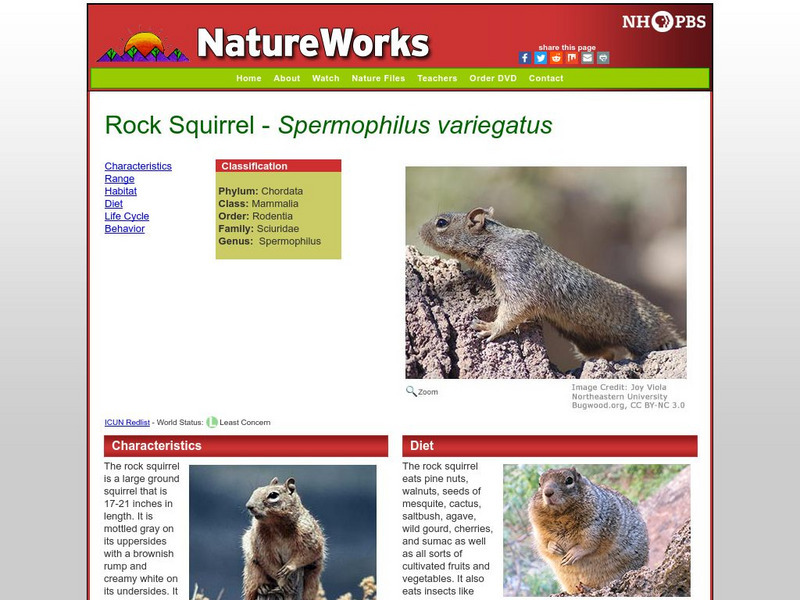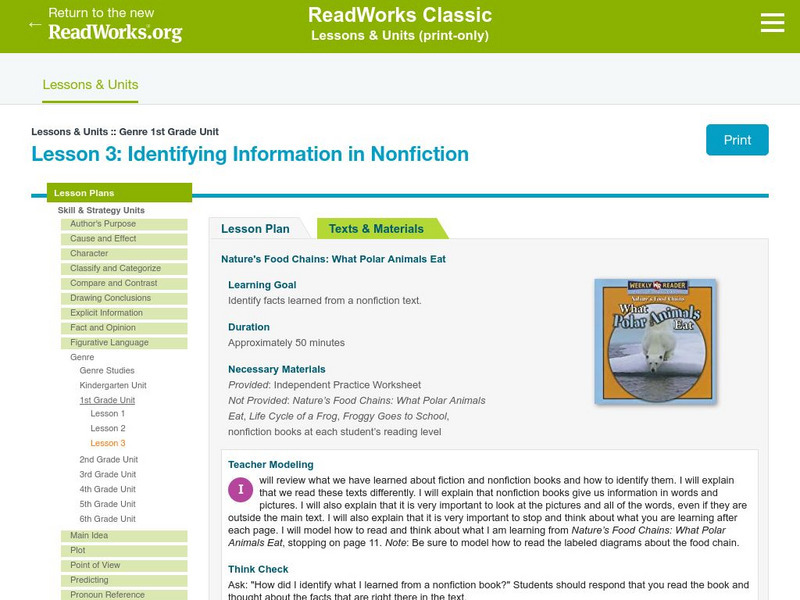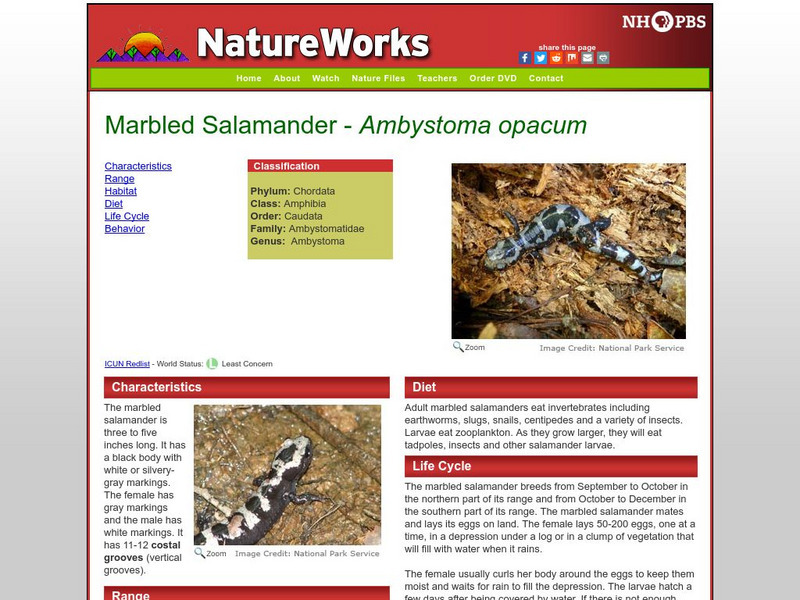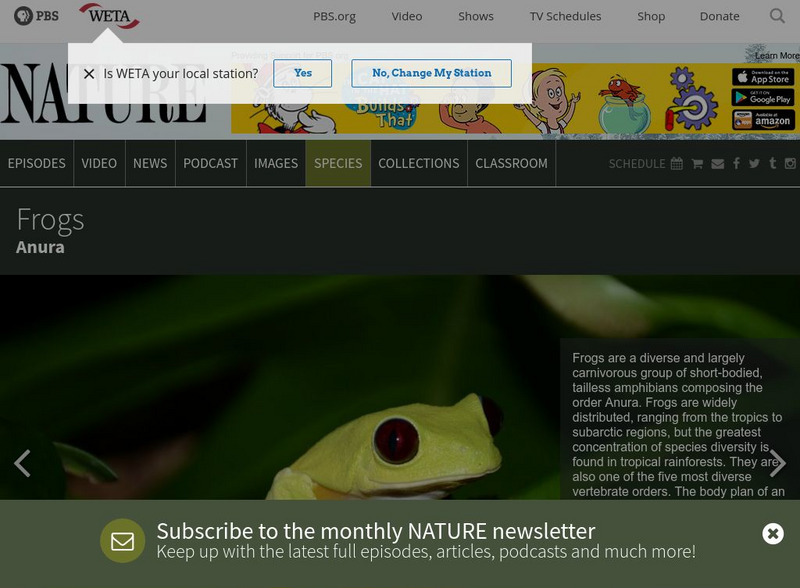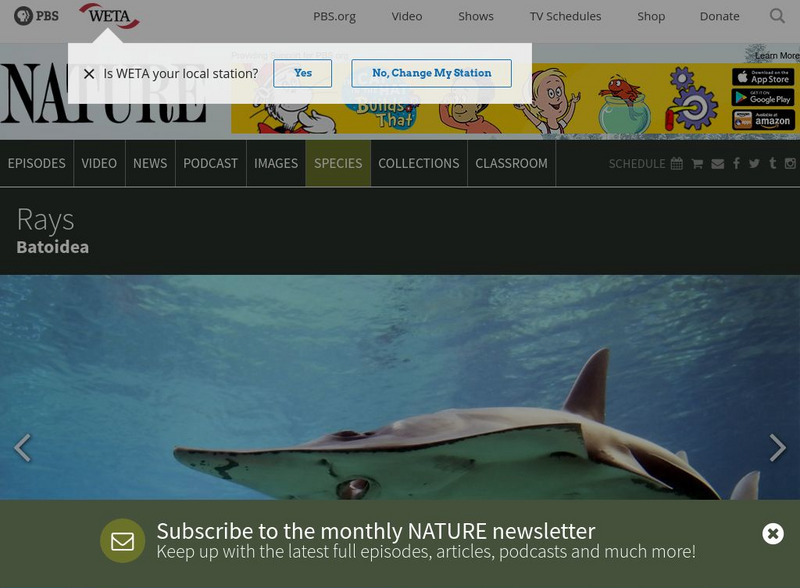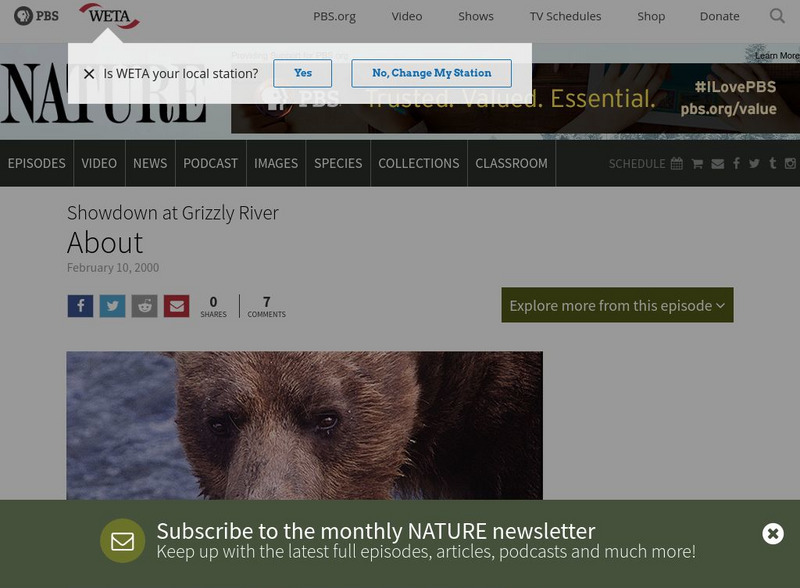PBS
Pbs Critter Guide: Butterfly
Can you name the four parts of the life cycle of the butterfly? This site features a brief but detailed description of the life cycle of a butterfly and some other fun facts about this interesting insect.
PBS
Nh Pbs: Nature Works: Margay
The Margay is a nocturnal feline that lives in Mexico and South America. The content of this source includes a look at this species' life cycle, habitat, characteristics, range, behavior. and diet.
American Museum of Natural History
American Museum of Natural History: Ology: What Do You Know About Stars?
Test your knowledge with this ten-question quiz on stars. Focusing on stars in the Milky Way galaxy, questions range from the life cycle of a star to the number of stars in our galaxy.
PBS
Nh Pbs: Nature Works: Long Tailed Weasel
Discover the Long-Tailed Weasel, a small carnivore that lives in various parts of North America. The content of this site includes a look at this species' behavior, characteristics, range, habitat, life cycle, and diet.
PBS
Nh Pbs: Nature Works: Red Headed Woodpecker
The red-headed woodpecker can be found in woodlands throughout the United States east of the Rocky Mountains. The content of this site includes information on the characteristics, habitat, life cycle, range, behavior and diet of this...
PBS
Nh Pbs: Nature Works: Semipalmated Plover
This site offers a clear and concise look at the Semipalmated Plover. The information covered in the source includes characteristics, habitat, life cycle, range, diet and behavior. You will also find clear photographs of this aquatic bird.
PBS
Nh Pbs: Nature Works: Willow Ptarmigin
Identify what makes a Willow Ptarmigin unique in comparison with other types of Ptarmigins when you explore this site. This source provides information ranging from characteristics, life cycle, range, habitat, behavior and more of this...
PBS
Nh Pbs: Nature Works: Rock Ptarmigan
Discover how the Rock Ptarmigan lives in the Tundra when you check out this site. This resource features photographs, information on characteristics, life cycle and more.
PBS
Nh Pbs: Nature Works: Semipalmated Sandpiper
Explore the world of the Semipalmated Sandpiper. Students and teachers will benefit from this clear and concise resource. The concepts included in this source are characteristics, life cycle, behavior, diet, range, and habitat.
PBS
Nh Pbs: Nature Works: Florida Panther
Learn more about the Florida Panther through this educational site. Students will find information about habitat, life cycle, diet, behavior and more of this small cat.
PBS
Nh Pbs: Nature Works: Rock Squirrel
This site provides a look at the Rock Squirrel. Come and explore the characteristics, life cycle, diet, habitat, behavior and range of this fascinating rodent.
Read Works
Read Works: Genre 1st Grade Unit: Identifying Information in Nonfiction
[Free Registration/Login Required] A lesson in which young scholars use the books Nature's Food Chains: What Polar Animals Eat by Joanne Mattern, Life Cycle of a Frog by Angela Royston, and Froggy Goes to School by Jonathan London to...
PBS
Nh Pbs: Nature Works: Marbled Salamander
The marbled salamander lives in forests and woodlands in the eastern part of the United States, where it is an endangered species in certain states. Students and teachers will find the content to include a look at the species' life...
PBS
Nh Pbs: Nature Works: Little Brown Bat
The little brown bat lives along streams and lakes in North America. It forms nursery colonies in buildings. In the winter it hibernates in caves and mines. The content of this resource includes a look at this species' range, habitat,...
PBS
Nh Pbs: Nature Works: Moose
The moose is the largest member of the deer family and the largest mammal in North America. Students will find information on its range, habitat, life cycle, behavior, and diet.
PBS
Nh Pbs: Nature Works: Red Squirrel
The common red squirrel is found throughout most of North America in coniferous, deciduous and mixed coniferous-deciduous forests. This site features information ranging from characteristics, life cycle, diet, behavior, range and habitat.
Other
Academy of Natural Science: Butterfly Life Cycle
With this resource, learners examine the four stages of butterfly metamorphosis in this succinct presentation from the Academy of Natural Sciences in Pennsylvania.
PBS
Pbs Nature: Frogs and Toads
Do you know how to tell the difference between a frog and a toad? This site provides interesting facts and information about this type of amphibian from where they live to what they eat and more.
Science Buddies
Science Buddies: Swimming in Acid: Understanding Ocean Acidification
The oceans are a precious natural resource, part of Earth's carbon cycle. But what happens if the oceans absorb too much carbon dioxide? Many scientists are concerned that the increased absorption of carbon dioxide is causing them to...
Smithsonian Institution
National Museum of Natural History: Ocean Planet
Detailed website that was a companion to a 1995 traveling exhibit of the Smithsonian. Links to lesson plans and other educational materials are at the bottom of the page. Enter the exhibition to explore the world of the ocean.
PBS
Pbs Nature: Ray
The word "manta" means blanket in Spanish--and the Manta ray gets its name from its blanketlike appearance in the water. Learn all about their life cycle and habitat in text and pictures.
Other
Study of Northern Virgina Ecology: Black Carpenter Ant
Lots of information about the black carpenter ant. Learn about their physical characteristics, colonies, life cycle, food sources, and predators. A detailed chart listing many plants and animals permits exploration of their relationships...
PBS
Pbs Learning Media: Dinosaur Train
Dinosaur Train sparks children's interest in life science and natural history. As they explore a variety of animals, children develop the inquiry skills and knowledge needed to help them think, talk and act like paleontologists. Choose...
PBS
Pbs: Nature: Showdown at Grizzly River
PBS Nature presents Grizzlies. Learn how grizzly bears raise their young around McNeil River Falls, a place in the wilderness of Alaska. This is a great place because of the salmon that swim up stream every summer.







